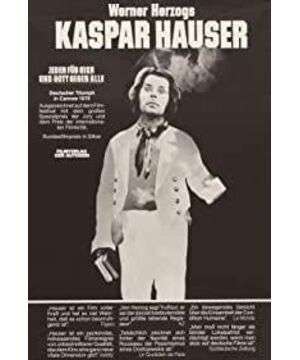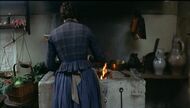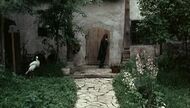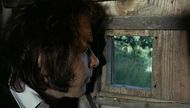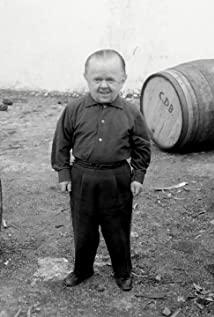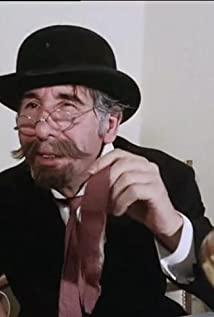This is a real event. In 1974, the then-young German director Werner Herzog brought this incident to the screen in "The Mystery of Garth Hopper." The film became one of his masterpieces, winning the Grand Jury Prize at the Cannes Film Festival the following year.
Among the leaders of the "New German Film Movement" at that time, Herzog was the most philosophical. His films were obviously the product of "theme first" and were extremely stylized. He always chose some human life. People or events outside the comprehension of experience and civilization, placed in an extreme situation of keeping a distance from human experience, reflect on the insurmountable weaknesses of human beings themselves. He said: "I express in my film what I see, and no one else has seen it nor recognized it." So, the director, who inherited the Germanic tradition of reason, draws from this true story Have you seen something that no one has ever seen?
First, he saw people's indifference and selfishness through Casper's eyes. For more than 100 years, Casper existed only as an object of scientific research in the database of human civilization. For "normal" people, he was an incomprehensible mystery, a freak for people to visit, An animal with complete limbs and five senses is not a person, so there is no need to treat him according to human standards. He was put to sleep in a stable, or imprisoned, and well-dressed gentlemen and officers examined every scar, every joint, every muscle on him for the suppleness of his body like beasts, and tested him with sword and fire His physical and psychological responses were done only to have a scientifically accurate record, because Casper was such a rare specimen. Pascal's finger was burnt by the fire, and the pain was so painful that he burst into tears, which attracted laughter from the onlookers. This may be the first time he shed tears as a human, and it made him understand for the first time that as a human being, pain comes not only from physical trauma, but also from spiritual humiliation. After completing the scientific record, Pascal was no longer useful. In order to relieve the burden, people gave him to the circus as a monster to exhibit and make money. A living person, no matter how special his identity is, has no minimum living conditions and dignity, and the compassion he is born with will never be imposed on him. Can such a group of people still be called "normal"?
When the British aristocrats were about to adopt Casper, what annoyed the aristocratic master was that Casper did not know how to appreciate his kindness. He didn't have a decent word commensurate with the elegance of the aristocrats in the public, so he went to knit a sweater by himself. The noble man can only say: "I don't understand, I don't understand." Is it really for adopting a godson, rather than to satisfy his "benevolent" vanity and provide for the gentlemen and ladies of the upper class. A curious opportunity? Casper is pure and natural. When the old teacher explained to him that people around him care about him, he broke the mystery: "These people are like wolves."
Perhaps, in a normal person with nothing, as we have seen in the great classical literary tradition, Casper feels as cold and selfish as we can see. The more important significance of Casper is to let Herzog see the shadow behind the civilization and progress that human beings are proud of. As soon as Casper came into society, he possessed a kind of natural humanity, and then we watched him being asked to understand human order and civilization little by little. When he could not understand this and threatened the established order, someone eventually came to kill him. This murderer is not an individual, but represents this sick civilization. After Casper's death, people have to look for evidence of deformity from his body to prove his health.
The purpose of civilization is for the well-being and progress of human beings, and is to make people live more humanely. In the movie, Herzog obviously took a lot of thought and carefully arranged three confrontations between Casper and the so-called civilization. Let us see clearly that civilization has been reduced to a false decoration and a murderous weapon. For the first time, the church, which represents the sacred values and emotions of mankind, came to poor Casper to witness the greatness of God. The priest hoped that he was born in the dark cave with God in his heart. Casper said: "There I have everything. I didn't think about it. I can't imagine that God created everything without using anything." The second time, the philosophy professor representing science and wisdom gave Casper a logical problem, wanting to use his failure to increase the brilliance of science, Casper responded to the arrogant professor with an unusually naive answer. Ironically, the maid understood Kasper's reasoning, but the professor's answer was incomprehensible. The third time is that the secular society wants him to be grateful for people's "kindness" and the beauty of the world. Casper, who has lived a "civilized" life for several years, has completely denied this cold world: "To me Speaking of, I came to this world in a terrible autumn." Seeing this, you will understand that Casper is destined to be an anomaly and will not be tolerated by society.
The night was dark, the surrounding fields were silent, the dark green grass and trees were ambiguous and silent like human sympathy, and the father who was about to abandon him when he came out was dressed in black, sitting in the middle of the picture with his back to the camera, like a majestic statue. The icy tower, with Casper in the foreground lying prone, looked so innocent and helpless. Perhaps, when vulnerable and marginalized individuals need help, society is such a tower of indifference and majesty.
Nonetheless, Herzog was not a radical heretic, and he was still passionate about human fraternity and traditional values. If it weren't for that, I don't think he'd be able to detail Kasper's squalid, muddled life in the kiln with his extremely cool and restrained long takes. After all, human innocence does not equal ignorance. Moreover, the peasant couple who cared for Kasper in the first place, their lovely children, and the great sympathetic old teacher and his maid, whose feelings for Kasper are so familiar and kind in our eyes, are family members and relatives, brothers and brothers, parents and children. Herzog's spearhead has always been an alienated, rancid civilization.
The cinematography of the film is also worth mentioning. Herzog's other masterpiece "Aquile, God's Wrath" uses an adventure story as a metaphor for mankind's extremely inflated ambition to conquer and power. The characters' expressive expressions and exaggerated body language are clearly visible under the camera lens. Even the vast mountains and rushing rivers are wild and uninhibited, as if the materialization of human desires. In "The Mystery of Garth Hopper", he used a naturalistic method of shooting, using long shots with fixed positions in most cases, very little movement and zooming, and quick cuts, consciously and the characters. Keeping a distance from the event, calmly taking Casper, the people and the environment around him into his eyes, and letting the audience see and understand for themselves, this method is entirely because his purpose is to present the whole society's concern for Casper attitude and reflect on that attitude. The so-called text has no fixed method, the method is to serve the thought, and two completely different styles have made his two masterpieces. For example, the nearly two-minute long shot at the end of the film: after the autopsy of Casper's body, the clerk finished the record, the camera watched from across the street as he came out of the house contentedly, waved the carriage, but only let the driver take his Bringing the top hat home, he has to walk home because "it's a day to remember" and he has to be a little different than usual. They've just discovered abnormal shapes in Casper's brain and liver, "which are fantastic to finally be able to explain to this weirdo". The camera slowly panned ninety degrees to the right, quietly watching this somewhat comical figure talking to himself, following the carriage along the stone road between the houses and heading towards the depths of the city. Science and indifference finally triumphed over this poor inhuman.
From time to time, there are some empty mirrors without people in the film, the vast fields, the silent trees, the swaying water plants, a white swan in the dark night, the roofs with cascading shadows, and the misty mountains in the distance. There, the composition is beautiful, the artistic conception is bleak, and it exudes a strange charm. I understand some of them, such as the swan quietly hiding in the shade before Casper died. Most of the swans I didn't understand. Maybe they didn't have deep meaning, but I believe there are feelings in them. They make your eyes and minds feel Stop involuntarily, think about nothing, feel something creeping into your heart.
At the beginning of the film, there is a long mirror for nearly a minute. Under the hazy sky, the withered and yellow reeds can not be seen, and they rise and fall one after another under the strong wind. Then a subtitle was given: "Don't you hear the horror around you? The man who shouted asked for silence." At the end of the film, Kasper said before his death that he had a dream that a knight led a camel caravan across the desert , saw the mountains in front of him, lost his way. The blind old guide tasted a handful of yellow sand on the ground and said: You are wrong, it is not a mountain, but your illusion, we have to go north. They obeyed their guide and found the city in the north. "This is the beginning of the story," Kasper said. "After they got to that city, I don't know." Would that be the Garden of Eden or Sodom consumed by the flames of God?
One head and one tail, some with ears but not with eyes. Herzog is really well-intentioned. I seem to have heard Luo Dayou's "Blind and Deaf":
the wall in the underpass asks who is the blind and deaf
fortune-teller today, and the old man who is blind and deaf is being overly favored by ignorant people. The
prophet's words come from the air Does it enter your ears? The
tide and the sound of cicadas The message coming
- a haze
View more about The Enigma of Kaspar Hauser reviews


